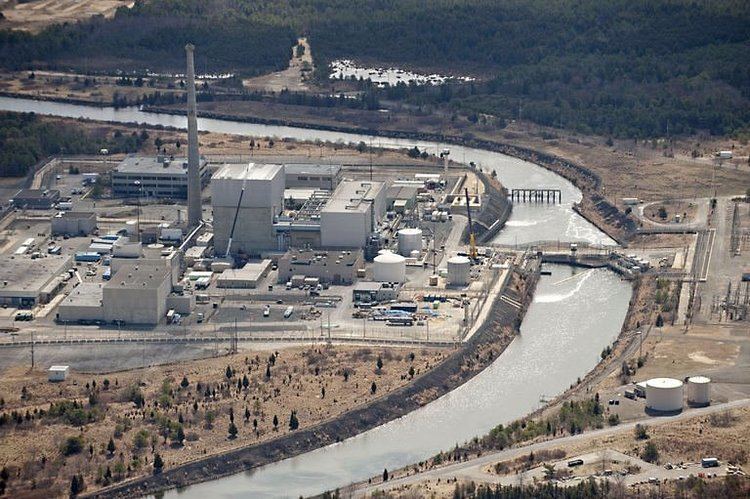NJ Tax Court: Spent Nuclear Fuel is…Taxable!

Earlier this year, the N.J. Tax Court resolved an interesting case that intersected nuclear physics and private property rights. In a published opinion in Exelon Generation Co LLC, etc. v. Twp. of Lacey, the Court addressed a novel issue “as to whether [nuclear fuel] storage casks are taxable as real property. Property that is permanently affixed is considered real property. The issue turns upon whether the storage casks are permanently affixed.” Slip Op. at 11.
The parties’ contentions were outlined by the Court:
Exelon Generation and Oyster Creek Environmental Protect (Taxpayers) challenge whether storage casks which house highly radioactive spent nuclear fuel are subject to taxation as real property. Taxpayers must store the spent fuel in the casks to protect the public and the environment from exposure to harmful radiation emitted from the spent fuel. To be considered taxable as real property, the storage casks must be affixed permanently.
Taxpayers assert the spent fuel and storage casks are on-site temporarily until a disposal facility opens to accept the spent fuel from not only this site, but also other sites across the nation.
The Township of Lacey asserts the spent fuel and storage casks are on-site permanently. By law, there is nowhere to move the spent fuel. Though there have been plans over the course of decades for various disposal facilities, the spent fuel has continued to accumulate at the site since the 1970s.
[Id. at 2].
The Court began its analysis by detailing the process in which spent fuel is removed from a nuclear reactor and then transferred to large storage casks that weigh approximately 200,000 pounds each when filled. Id. at 4-5. The law requires Nuclear Regulatory Commission (NRC) approved storage casks to protect the public and the environment from the harmful radiation emitted by the spent fuel. When the subject property, the Oyster Creek Nuclear Generating Station, first began generating power in 1969, the plan was to transport the spent nuclear fuel to a reprocessing plant for reprocessing into either uranium- or plutonium-based fuel. Id. at 5. However, in the late 1970s, there were fears that the availability of plutonium from reprocessed fuel would lead to the proliferation of nuclear weapons by other nations or terrorists. Consequently, the federal government enacted a policy that ended fuel reprocessing. Over the next 30 years, Congress had planned to transport the nation’s spent nuclear fuel to designated disposal sites in Nevada and Utah, but the plans were ultimately shelved due to opposition and legal challenges. As of the date of the Court’s opinion, “[t]here are seventy-five current or former commercial nuclear plants across the nation, all with spent fuel.” Id. at 10.
The next step was for the Court to determine whether the fuel storage casks were non-taxable personal property. Regarding the applicable rule to answer this questions, the Court stated as follows:
Property is considered permanently affixed, and thus taxable, if it remains at the site for the period of its useful life. Gen. Motors, 150 N.J. at 529 (quoting A. Floor Statement to S. 1858); Gen. Motors, 20 N.J. Tax at 283. The custom and usage of the trade is determinative of whether property is ordinarily intended to remain permanently. R.C. Maxwell Co. v. Township of Galloway, 145 N.J. 543, 560 (1996); Gen. Motors, 20 N.J. Tax at 283; N.J.A.C. 18:12-10.1. In other words, it is not the subjective intentions or aspirations of the taxpayer, but the expectations of the marketplace.
[Id. at 22-23].
Applying this rule to the case at bar, the Court found that for over fifty years, the federal government had mandated a “custom and usage” of spent nuclear fuel remaining at the nuclear power plants which consumed the fuel. To that end, the Court held that there is simply no custom and usage allowing the removal of spent nuclear fuel from a plant site and further held that the taxpayer’s aspirations of off-site storage were speculative. Id. at 24. “It is anyone’s guess as to when or if a disposal site will open. The court cannot base its decision upon speculation. Unless and until a disposal site is up and running and actually accepting spent fuel, the custom and usage is for the fuel to remain safely stored in the onsite storage casks.” Id. at 29. In sum, the Court granted the Township of Lacey’s motion for summary judgment on the issue presented.
Although the specific factual context certainly guided the Court’s decision, this case highlights an important takeaway for N.J. taxpayers and businesses: the subjective intentions or aspirations of the taxpayer are irrelevant in determining whether property is taxable. Rather, the analysis centers around the expectations of the marketplace, i.e., “the custom and usage of the trade.”
If you believe your property was incorrectly assessed or would like to challenge a tax assessment, please contact McKirdy, Riskin, Olson & DellaPelle, P.C. to speak with an experienced property tax appeal attorney who can guide you through every stage of the litigation process.







